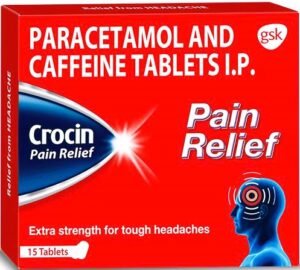
When it comes to joint pain, there are both pharmaceutical options and natural remedies that can help alleviate discomfort. Here are some of the best medicines and home remedies for joint pain:
Medicines for Joint Pain:
1. Nonsteroidal Anti-Inflammatory Drugs (NSAIDs):

– Ibuprofen (Advil, Motrin), Naproxen (Aleve), Crocin, Voltaren Rapid.
– How they work: NSAIDs help reduce pain and inflammation in the joints.
– Caution: Prolonged use may lead to stomach issues. Consult a doctor, especially if you have other health conditions.
2. Acetaminophen (Tylenol):
– How it works: Acetaminophen can help reduce pain, but it doesn’t have anti-inflammatory properties.
– Caution: Should be taken as directed to avoid liver damage.
3. Prescription Medications:
– Depending on the cause and severity of joint pain, a doctor may prescribe stronger pain relievers or anti-inflammatory medications.
Home Remedies for Joint Pain:
1. Hot and Cold Therapy:
– Applying a hot or cold compress can help alleviate pain and reduce inflammation.
2. Exercise and Physical Therapy:
– Regular exercise and physical therapy can help strengthen muscles around the joints, improving stability and reducing pain.
3. Weight Management:
– Maintaining a healthy weight reduces pressure on the joints, especially in weight-bearing areas like the knees and hips.
4. Dietary Changes:
– Omega-3 fatty acids (found in fatty fish), ginger, and turmeric have anti-inflammatory properties and may help with joint pain.
5. Epsom Salt Soaks:
– Adding Epsom salt to a warm bath can relax muscles and relieve joint pain.
6. Topical Pain Relievers:
– Creams, gels, or patches containing ingredients like menthol, camphor, or capsaicin can provide localized relief.
7. Herbal Supplements:
– Some herbs like turmeric, ginger, and boswellia are known for their anti-inflammatory properties and can be taken as supplements.
8. Essential Oils:
– Certain essential oils like lavender, eucalyptus, and peppermint, when diluted and applied topically, may provide relief.
9. Acupuncture and Acupressure:
– These alternative therapies can help alleviate pain by stimulating specific points on the body.
10. Rest and Relaxation:
– Taking breaks and getting adequate sleep can help the body recover and reduce stress on the joints.
Always consult a healthcare professional before starting any new treatment regimen, especially if you have pre-existing health conditions or are currently taking medications. They can provide personalized advice and discuss potential risks and benefits.




